In an age of innovation, it’s important to find new ways how to increase personal productivity in the workplace. From task management to time tracking and goal setting, there are many things you can do to make your time more effective.
Read on to learn what personal productivity is, why it’s important, and how to increase personal productivity in the workplace.
[divider width=”full”]
Recommended Reading:
- How to Forgive Yourself for Wasting Time (for Better Productivity & Time Management)
- 18 Reasons Why Are Goals Important And Other Things You Need to Know About Effective Goal-Setting
- Best Books on Creativity: 13 Must-Read Books On Creativity for 2022
[divider width=”full”]
What is personal productivity?

Personal productivity factors the amount of time and energy you devote to a project, activity, or goal. It affects how much time you spend on certain activities and how much energy you expend. It also refers to your overall effectiveness in accomplishing your goals. Your personal productivity gives you an idea of how efficiently you perform and accomplish essential tasks on a regular basis.
Why should we care about personal productivity?
One of the main reasons we should be concerned with personal productivity is that it can be very beneficial to us as individuals.
If you’re constantly wasting your time on daily tasks that aren’t really important to you, then you’re going to end up feeling stressed out, overwhelmed, and frustrated. On the other hand, you’ll feel fulfilled and contented if you use your time wisely and effectively.
Personal productivity also has significant business implications. By improving your personal productivity levels, you’ll be able to accomplish more tasks in less time and spend less energy.
Three Basic Principles of Productivity

Before we discuss how to increase personal productivity in the workplace, we need to take a look at the 3 basic principles of productivity.
According to “The Myth of Multitasking: How Doing it All Gets Nothing Done” author and time management expert Dave Crenshaw, there are three basic principles of productivity that we should all keep in mind, and these are the following:
1. Space
Space refers to the environment you give yourself to work on a project, activity, or goal. It could be any room or area, but it should be clean, clutter-free, and organized to give you enough space to work on your project. The idea is to provide an environment for you to focus on one task at a time without being distracted by other things around you.
2. Time
Time refers to the amount of time you allocate to a project, activity, or goal. This is important because we can only do so much in one day. To effectively complete a task, activity, or goal, we need to allot enough time for it. It is also important to ensure that you’re not wasting your time. If you’re constantly doing things that aren’t important to you, then it’s going to be challenging to accomplish anything.
3. Mind
The mind plays a vital role in personal productivity. But to harness its full potential at work, you need to make sure that your mind is clear and free of distractions. Clarity is critical because you can’t effectively work on a project, activity, or goal if your mind is distracted.
How do I measure my personal productivity? How to increase personal productivity in the workplace using tools and apps?

There are several tools available to track your progress. Some apps allow you to set goals and keep track of your daily activities, while others provide a simple dashboard that displays all your metrics at once.
Here are some apps and software that you might want to explore if you’re looking forward to boosting your productivity in the workplace:
Project Management Apps:
Time-Tracking Apps:
Note: If you need help with any of the tools above, please drop your comments below, and I’ll do my best to create an extensive guide for each one.
How to Increase Personal Productivity in the Workplace Tips, Tricks, and Hacks

How can you be more productive in the workplace?
Many people would say that you need to work smarter, not harder. But what does that mean?
It means using every resource in your control to get things done — which includes your workplace! We’ve got some great tips on how to increase personal productivity in the workplace, and here they are:
1. Monitor time spent on each task and set limits.
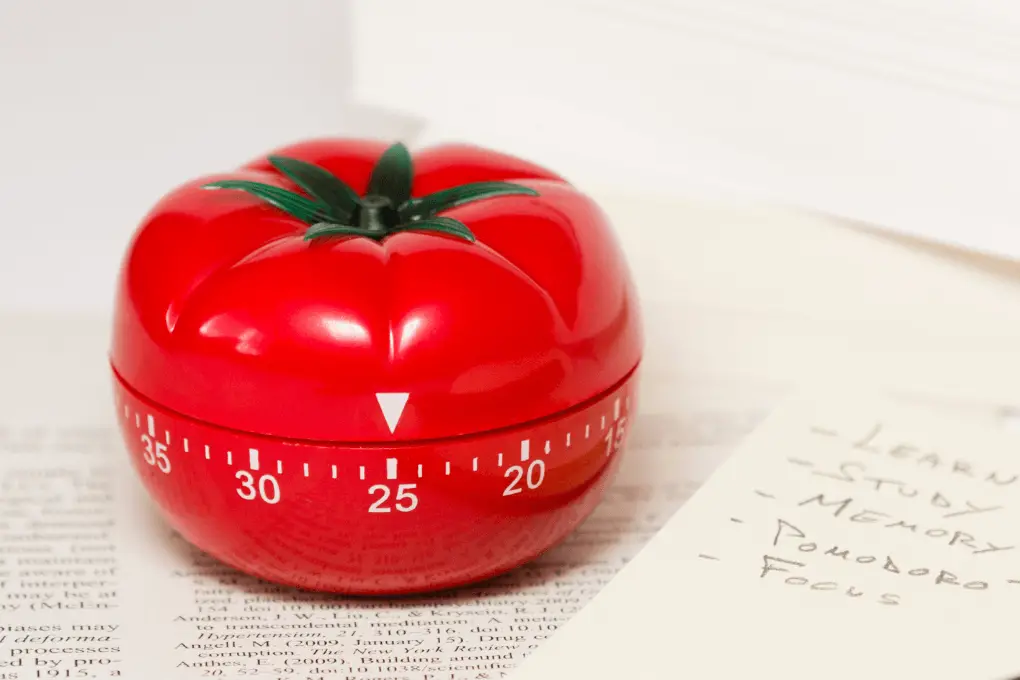
If you want to improve your productivity at work, one of the best things you can do is track and limit how long you spend working on each task. This will give you a better idea of where your time goes so that you can focus on the most productive activities.
I use several time trackers to track my time at work. Some of my favorites – which are free, by the way – are Toggl, Clockify, and Tmetric.
I also use Plutio for my businesses. I love it so much, but it’s not entirely free. However, it has everything you need to manage tasks and projects, and it has a built-in timer, too!
So, if you’re running a business and want to take your productivity to the next level, you might want to consider this app. (Limited offer: use code: Plu20io19 for an extra 10% off if you’d like to take Plutio for a spin.)
2. You should set your own deadlines.
Deadlines are vital to any project or activity. Without them, we’re more likely to procrastinate. And if this goes for too long, we might spend more time worrying than the time it takes to actually complete it.
How to increase your productivity in the workplace?
You need to make sure that you have clear and practical deadlines. They will help you stay on track and avoid unnecessary stress and mental fatigue, which might otherwise get in the way of getting things done.
I also like to set my own deadlines and stick to them. In fact, I have an extensive list of tasks that need to be done on a daily, weekly, monthly, or yearly basis. This helps me stay focused and avoid getting distracted. If this isn’t your cup of tea, I suggest you start small. Try to stick to one deadline at a time and work your way from there.
3. Try to adhere to the “2-minute rule” to establish new habits.
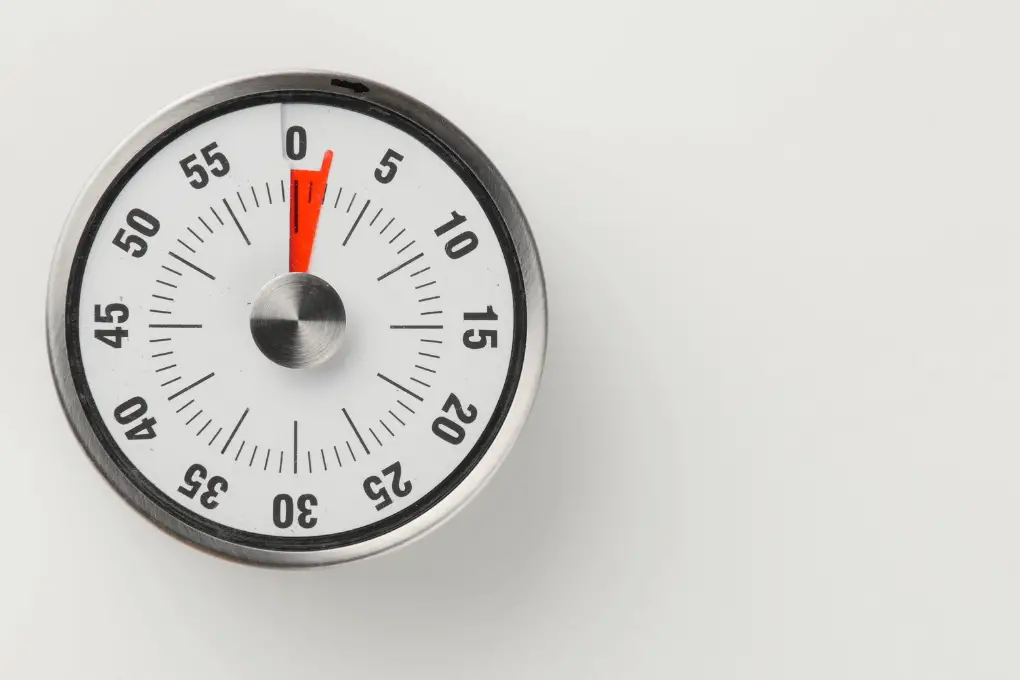
“Getting Things Done” author and productivity expert David Allen introduced this idea as part of his productivity tips. It’s based on the concept that starting a new habit only takes two minutes. In other words, you break down a big project into small, manageable chunks and take them on one at a time. So instead of having to read several pages of a book in one sitting, you could just read for just 2 minutes every day. That way, you’ll start to feel less overwhelmed, and you can follow through with a regular schedule until it ultimately becomes a new habit.
Personally, I found that this has worked exceptionally well for me. When I first started applying this principle, I thought it was too simplistic and never expected much. But after a few months, I began to see more and more positive results.
If you like to dwell deep into the benefits of having good habits and more, I recommend you check out this book by David Allen.
4. You need to stop multitasking.
You might think you can cover more ground while doing several tasks at once, but the truth is, it’s impossible to do so without compromising quality. It often results in less work getting done because of our constant switching between tasks. Besides, multi-tasking only allows you to spread yourself too thin and makes you more likely to make mistakes.
That’s why you should focus on one single task at a time. Focusing your attention on one task is essential for better productivity. So try to take control of your attention and switch back to the one task you were working on when you feel you are starting to get distracted.
If you’re a little unsure about putting a halt to multi-tasking, then I highly recommend you read this book by Gary Keller.
5. Put an end to perfectionism.
The idea of perfectionism is one of the most common mental traps we fall into. Perfectionists often set unrealistic goals and then feel disappointed when they don’t meet them. They may also become frustrated if they fail to achieve something they’ve set out to do.
If this sounds like you, I recommend you check out this book by Stephen Guise.
6. Try to minimize interruptions and distractions as much as possible.
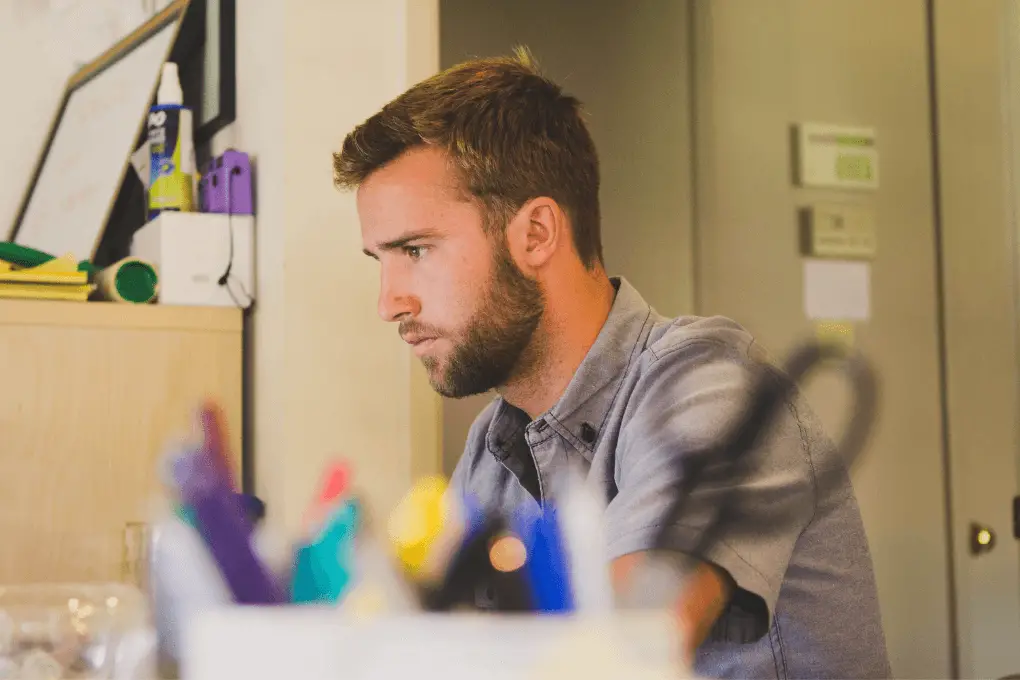
Distractions are one of the biggest reasons most of us have difficulties staying focused. While some of these distractions are necessary (e.g., work-related queries or family members calling), others are just there to divert our attention from what we’re working on. So try to avoid interruptions wherever possible.
You can do this by doing the following:
- Keeping your work environment clean, organized, and clutter-free.
- Time-blocking
- Keeping your phone and other electronics out of sight while you’re working
- Tracking your time
- Using Pomodoro
- Using headphones
[divider width=”full”]
Recommended Reading:
- Characteristics of a Know-it-all Person and How to Deal with Them
- 13 “New Month, New Goals” Tips to Make the Rest of This Year Your Best Year Yet
- 9 Surprising Advantages of Creativity in Business
[divider width=”full”]
7. Learn how to say no.
Saying no is an undervalued skill. We tend to take on too many tasks because we feel bad about saying no to people who ask for our help. And sometimes, we think that if we don’t take on these tasks, we won’t be able to contribute to our organization’s success.
But the truth is, it’s not as much about our contributions as it is about our self-respect. As such, it’s essential to take a step back and think about your priorities. It may be that you have more important things to focus on than helping out someone else with their work.
If this is the case, then you should find a way to say no without feeling guilty. That way, you can still honor your commitments while also respecting yourself.
If this is something that you constantly struggle with, then I suggest you learn from this book. It has helped me tremendously as well!
8. Be proactive instead of reactive.
Personal productivity involves taking control of your personal and professional life by planning ahead and making sure you’re doing everything you can to achieve your goals. And that’s what it means to be proactive as well.
Being proactive minimizes the chances of unforeseen problems derailing your progress. You can be proactive by planning ahead of time and adding mitigating measures to your plans, if needed. Lastly, being proactive means sticking to your commitments, whether they’re at work or in your personal life.
9. Eat that frog!

You’ve read that right. You MUST eat that frog.
But I don’t mean literally. Let me explain.
The concept started with motivational speaker and author Brian Tracy in his book called “Eat That Frog!” He explained that if we are faced with a major task that we don’t want to do (aka the big, ugly frog), then we should just start on it.
Why? Because the sooner you start, the sooner you’ll be done. The sooner you finish a task, the less likely you will procrastinate. And because you’ll be doing things you enjoy, you’re more likely to stick to your schedule.
To put this into practice, you need to block off the first couple of hours per day to accomplish the biggest and most difficult task on your to-do list. In the words of Brian Tracy, you must “eat that frog” so you can continue accomplishing the less difficult tasks that you have.
10. Never take your health for granted.
When we think of productivity, we always think about how fast we can generate results. However, we often forget to think about how important it is to take care of our body, mind, and soul.
Your health matters as much as your productivity, as they both contribute to your life as a whole. By taking care of yourself, you are not only allowing yourself to work with more energy, but you are also increasing your chances of being successful at work and in your personal life.
So, go ahead, give your body the regular breaks it needs. You deserve to have the best health possible!
11. Seek constant and never-ending improvement.

Have you ever heard of the Japanese term “kaizen”?
Again, it’s another concept that has helped me tremendously. In simple words, it means constant and never-ending improvement. This concept can be applied to many different areas in our lives, but it is especially beneficial for us when it comes to productivity.
If you want to make the most of your life, it’s vital to seek continual improvement so that we don’t plateau. Instead, we continue to strive for new heights. And because this is a continuous process, we never run out of things to improve. That way, we don’t become stagnant and stop progressing.
As a side note, if you want to read more about kaizen and constant never-ending improvement, I highly recommend you check out this book, written by personal development coach Tony Robbins.
[divider width=”full”]
Recommended Reading:
- Motivation vs Inspiration: 11 Easy Ways to Tell Them Apart
- How to Get Better Deals: The 15 Essential Rules for Negotiation
- Battle of the Brains: Street Smarts Vs. Book Smarts
[divider width=”full”]
Final Thoughts on How to Increase Personal Productivity in the Workplace
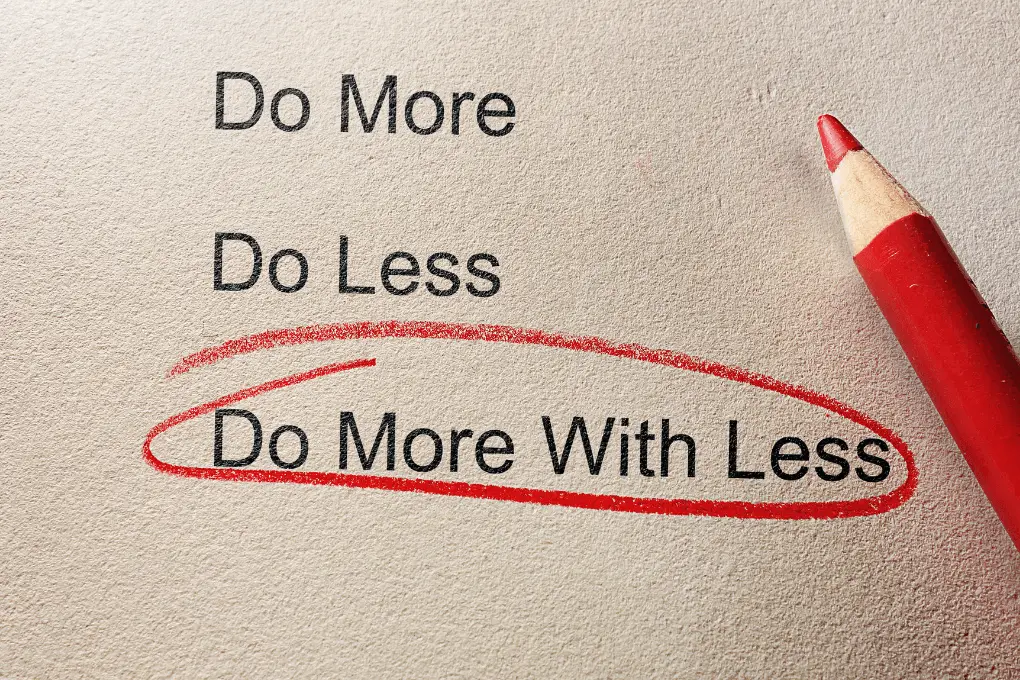
Personal productivity is essential to success in today’s world. Whether you’re looking to advance your career or simply achieve greater levels of happiness in life, you must become more efficient. By learning how to manage your time effectively, you’ll be able to spend more time doing the things that matter most to you.
Now that we’ve shared our top personal productivity tips with you, why don’t you share your ideas about how to increase personal productivity in the workplace?
Drop your comments below and share your thoughts with the world.
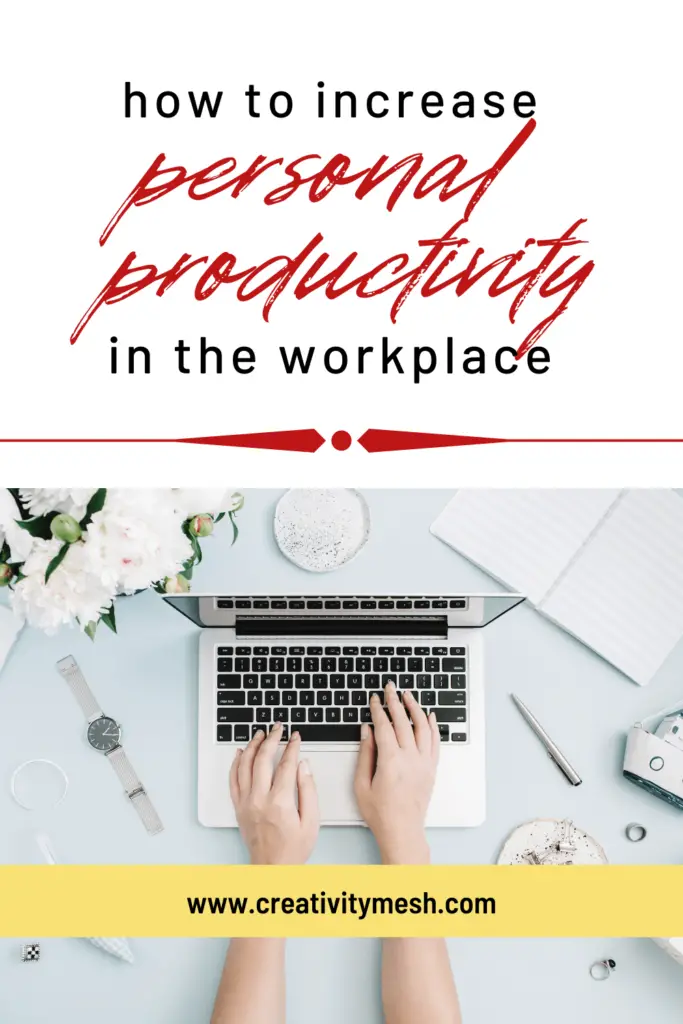
Disclaimer:
This post may contain affiliate links. Meaning, if you click on one of the product links, I will earn a small commission at no cost to you. Thank you for supporting Creativity Mesh.
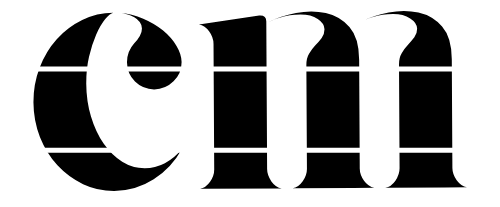






1 thought on “How to Increase Personal Productivity in the Workplace: 11 Tips to Help You Accomplish More by Doing Less”
Comments are closed.